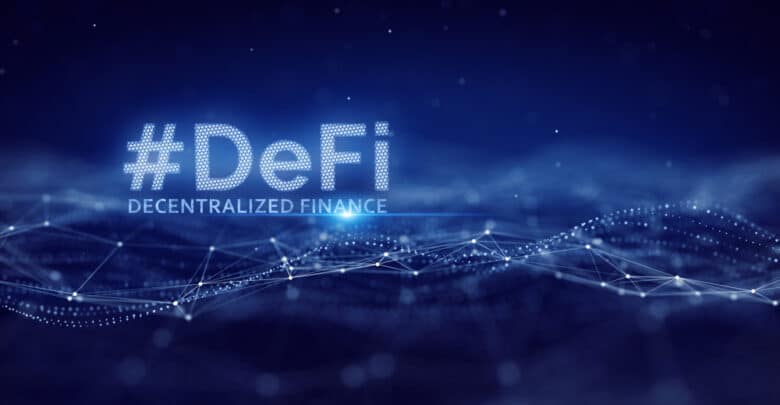Decentralized File Sharing: Here’s What To Know

Significance of Decentralization in File Sharing Explained
Decentralized file sharing ensures distribution and data access without relying on a central server. Instead, files are maintained on a network of interconnected nodes, mainly via peer-to-peer (P2P) technology.
Enabling file sharing can involve each network user providing storage space and bandwidth. Examples of properly known instances of decentralized file-sharing protocols include InterPlanetary File System (IPFS) and BitTorrent.
Decentralization has changed how users access and store digital information. Unlike the conventional centralized file-sharing systems that store files on one server, decentralized file-sharing utilizes a peer-to-peer mechanism.
What Are the Critical Elements of Decentralized File Sharing?
Peer-to-peer networks, which ensure direct user contact without a centralized server, are a decentralized file-sharing system’s backbone. As such, it fosters a strong system that enables participants to share files directly.
Blockchain technology aids in promoting trust and integrity in decentralized file-sharing networks. In this case, it enhances the safety of transactions and file transfers by ensuring impermeable and transparent record storage.
Cryptographic strategies can also ensure data privacy and integrity. End-to-end encryption in decentralized file-sharing systems boosts user confidence by ensuring content viewing by approved parties.
How Decentralized File Sharing Works?
Peer Discovery
Peers require a means to discover each other, and decentralized protocols or distributed hash tables (DHTs) are used for that. Peers develop a network lacking a primary authority by monitoring other peers.
Decentralized protocols implement communication guidelines that promote P2P transactions in the absence of a central server or authority. DHTs are decentralized systems that ensure distributed storage and recovery of key-value pairs across a network.
File Distribution
A file is divided into smaller parts, where each component is distributed among numerous network peers. The strategy ensures file availability since it is not stored in one location, promoting reliability and accessibility.
Dispersed Storage
Decentralized storage systems reduce dependence on one server by distributing file portions over numerous nodes. For example, IPFS uses a contend-addressed strategy to identify files based on content rather than physical location.
Peer Interaction
Peers request and share file parts directly with each other, and because of this direct connection, the file transfer coordination does not need a central server. Each peer plays a role in the file distribution process.
Blockchain and Smart Contracts
Blockchain technology is integrated into various decentralized file-sharing systems to enhance transparency and security.
Benefits of Decentralized File Sharing
Reliability and resilience are boosted by removing a single point of failure. For P2P networks, the system continues functioning even when some nodes go down.
Improved scalability can be achieved as the network develops. In decentralized networks, more users add to the capacity, permitting it to accommodate more traffic and demand.
Decentralized file sharing often integrates incentive mechanisms via token economies to motivate users to contribute resources such as storage and bandwidth. This creates a self-sufficient and cooperative environment.
Drawbacks of Decentralized File Sharing
An expansion of the network can evoke scalability problems. A poor user experience can be caused by high involvement if it leads to slow file retrieval times and more bandwidth needs.
Consistency and coordination problems might be experienced. Maintaining consistency in file versions across the network without a central server can be challenging, and this may lead to inconsistent data and conflicts.
Security susceptibilities are still a problem, particularly in the initial stages of deployments. As the systems develop and become more widely utilized, they become targets of attacks that evoke the need to develop robust security measures.
Conclusion
Decentralized file sharing will introduce a more secure, productive, and inclusive environment. Blockchain technology and distributed ledger will ensure tamper-proof and transparent transactions.
Decentralized protocols supporting peer-to-peer networks will ensure direct data transmission to reduce latency and reliance on centralized servers. Robust encryption tactics will alleviate privacy concerns and give consumers more data control.
Tokenization could lead to resource sharing among users, leading to the creation of a joint system.
Tokenhell produces content exposure for over 5,000 crypto companies and you can be one of them too! Contact at info@tokenhell.com if you have any questions. Cryptocurrencies are highly volatile, conduct your own research before making any investment decisions. Some of the posts on this website are guest posts or paid posts that are not written by Tokenhell authors (namely Crypto Cable , Sponsored Articles and Press Release content) and the views expressed in these types of posts do not reflect the views of this website. Tokenhell is not responsible for the content, accuracy, quality, advertising, products or any other content or banners (ad space) posted on the site. Read full terms and conditions / disclaimer.





